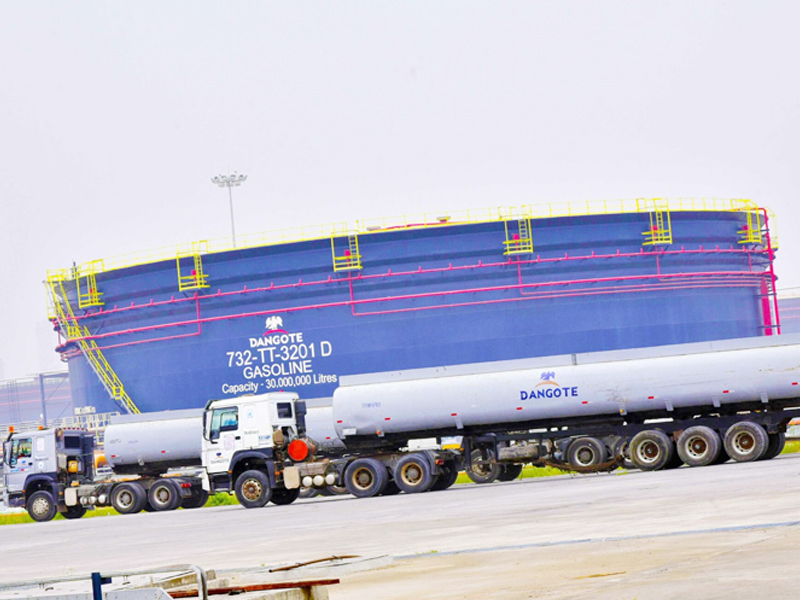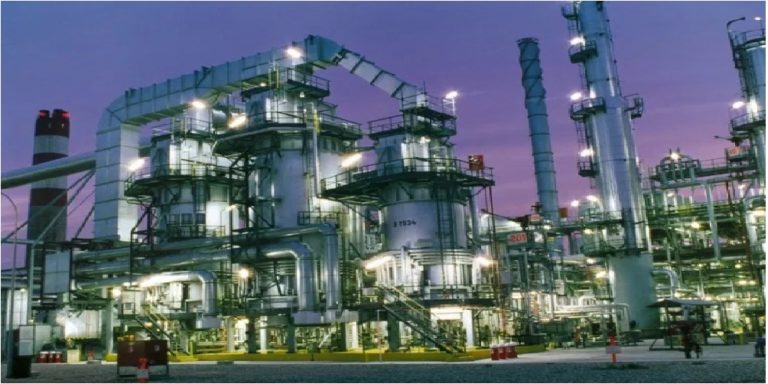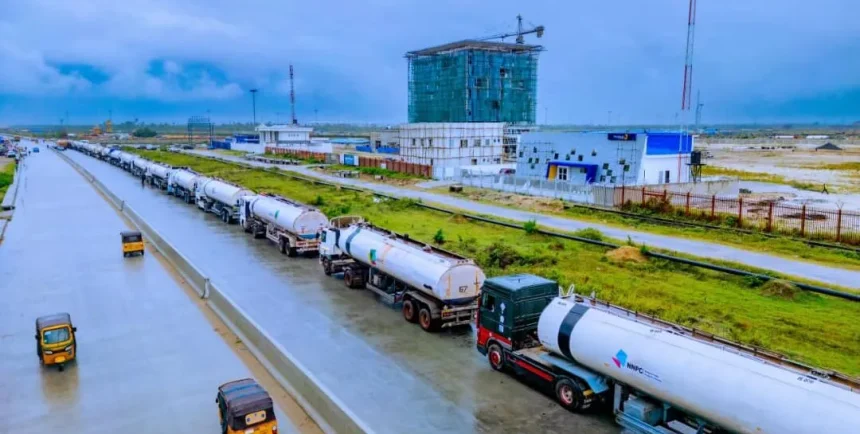Dangote Refinery Set to Begin Fuel Exports to South Africa, Angola, and Namibia Amid Local Controversy
The Dangote Refinery and Petrochemical complex, one of Africa’s largest refineries with a capacity of 650,000 barrels per day, is poised to start exporting fuel to South Africa, Angola, and Namibia, according to reports from Punch News.
This development highlights the refinery’s growing influence in Africa’s fuel supply landscape, as it initiates fuel export talks with additional African nations. A source with deep knowledge of the refinery’s operations revealed that negotiations with these countries have reached an advanced stage, bringing the refinery closer to becoming a major fuel supplier across the continent.
In addition to the initial export destinations, several other African countries—such as Niger Republic, Chad, Burkina Faso, and the Central African Republic—are currently engaged in discussions with the Dangote Refinery for potential fuel supply agreements.
The refinery is expected to attract even more countries interested in sourcing fuel locally from the continent rather than relying on distant suppliers. Ghana, for instance, has already expressed a strong interest, with Mustapha Abdul-Hamid, Chairman of Ghana’s National Petroleum Authority, affirming that a deal with the Dangote refinery could effectively end the country’s $400 million monthly fuel imports from Europe.
“Our discussions are progressing with Ghana, Angola, Namibia, and South Africa, and preliminary talks are underway with countries like Niger, Chad, Burkina Faso, and the Central African Republic,” the source disclosed.

This move is likely to significantly impact fuel availability and distribution across Africa, potentially reducing the dependency on non-African suppliers while strengthening economic ties within the continent.
Despite the promising progress in export negotiations, the Dangote Refinery is facing some resistance domestically. Local fuel marketers, including the Independent Petroleum Marketers Association of Nigeria (IPMAN) and the Petroleum Products Retail Outlets Owners Association of Nigeria (PETROAN), have expressed opposition to purchasing fuel from the refinery, citing high prices.
READ ALSO: U.S. Charges Iranian Man in Alleged Plot to Assassinate Donald Trump
Instead, these groups have opted to import fuel from other sources, maintaining that Dangote’s prices are prohibitively high for Nigerian consumers.
In response, the refinery source suggested that local marketers might have ulterior motives for resisting Dangote’s fuel supply, claiming that between now and January 2025, these “hidden agendas” would be exposed.
“Dangote Refinery remains Nigeria’s hope for a consistent and reliable fuel supply. Its capacity to meet national demand could alleviate fuel supply issues within the country,” the source added, emphasizing the refinery’s ability to meet Nigeria’s fuel needs.
The marketers, meanwhile, have defended their stance by arguing that imported fuel could offer a more affordable option for Nigerian consumers, who have recently been burdened with higher fuel costs following the removal of government fuel subsidies.
IPMAN and PETROAN have requested foreign exchange allocations from the Central Bank of Nigeria (CBN) to facilitate fuel imports and have sought permits from the Nigerian Midstream and Downstream Petroleum Regulatory Authority (NMDPRA) to ensure compliance with regulatory standards.

However, the NMDPRA has rejected claims that it granted IPMAN and PETROAN permission to import fuel under their associations.
Meanwhile, marketers are still awaiting approvals from both the CBN and NMDPRA to proceed with their import plans, with the central bank’s foreign exchange approval being a key factor in the viability of these imports. If successful, marketers argue that this could provide immediate relief to Nigerian consumers, who are still adapting to the price hikes post-subsidy removal.
As discussions continue, the Dangote Refinery’s plans to export fuel across Africa could usher in a new era of intra-African fuel trade, fostering greater regional integration and positioning Nigeria as a central player in the continent’s energy sector. However, domestic disagreements over fuel prices and supply chains will need to be addressed for the full potential of Dangote’s refinery to be realized both locally and regionally.

